Sleepwalking Towards A Brand New World Order
None are more hopelessly enslaved than those who falsely believe they are free.
“Oh, wonder! How many goodly creatures are there here! How beauteous mankind is! O brave new world, that has such people in ‘t!”
Many are not aware of the origins of the title of Aldous Huxley’s dystopian masterpiece, Brave New World. The lines above were penned by none other than William Shakespeare in his play The Tempest. If you’re anything like me, you haven’t read much Shakespeare in its original form. His writing is a difficult read having been written in the late phase of Early Modern English at the turn of the 17th century. But to gain a deeper insight into the premise that underpins Huxley’s work, we need to understand the circumstances around which these words from The Tempest were spoken. This won’t take more than a few lines, I promise.
The Tempest takes place on a remote island, where the sorcerer Prospero, the rightful and deposed Duke of Milan lives in exile with his daughter Miranda, and his two servants, Caliban, a savage monster-like figure, and Ariel, an airy spirit. Using his magic, Prospero causes the shipwreck of a passing ship, marooning eight people on the island. The famous lines are uttered by Miranda when she is introduced to these new inhabitants, the only humans she has ever seen except for her father and Caliban.
The irony, and why Huxley chose this title, is that five of the eight men who come ashore are anything but goodly. They are dirty rotten miscreants who represent all that is vile and corrupt in the civilized world of Europe.
In 1932, when Aldous Huxley chose this phrase as the title of his novel about a dystopian future in which society is carefully organized, manipulated, and monitored, he was conveying an idea that a society that appears to be wondrous at first glance may, in fact, be institutionally evil.
One could say that Miranda is the mouthpiece through which Shakespeare expresses the idea that human beings are, despite our flaws, pretty damn marvelous. On the other hand, she is a child, raised in an extremely sheltered environment with an innocent, overly naïve outlook on the nature of reality.
The echoes of Miranda’s naivete are all too apparent in the global zeitgeist. A complacent and comfortable western society, seventy years removed from war on the homeland, regards totalitarianism as a mere ghost of the past, a footnote in history. And yet it blithely accepts the gradual erosion of liberties and the ever-increasing encroachment of the State into our daily lives, dismissing it as the cost of participating in society. Just like the allegorical boiling frog, we are slowly conditioned to accept this “New Normal”, this Brave New World Order.
Set in the distant future, Huxley’s Brave New World depicts a scientifically managed, technocratic dystopian society. The world is united politically under a World State. The ruling authorities, ten world controllers, attain mass compliance by supplying society with an unending stream of distracting entertainment, sanctioned distribution of drugs, and psychological manipulation via a technique Huxley called hypnopaedia.
Huxley wrote Brave New World as a dire warning to humanity. He believed that advances in science and technology would be used to enslave a human race that didn’t even realize it had been enslaved. Technology would render the people so oblivious to their plight that they would in fact rather enjoy their servitude. Thirty years after the publication of the book, Huxley gave a speech at Berkeley University where he explained:
It seems to me that the nature of the ultimate revolution with which we are now faced is precisely this: That we are in the process of developing a whole series of techniques which will enable the controlling oligarchy who have always existed and will always exist to get people to love their servitude.
In the same speech, he states that the scientific dictatorships of the future are more likely to follow the Brave New World pattern than the 1984 pattern, not due to any humanitarian qualms, but because it is “probably a good deal more efficient”. I tend to agree. The future I see playing out over the next few decades will certainly include some elements from Orwell’s 1984, such as the mass surveillance state, the weaponization of propaganda, the inversion of truth, censorship, and also, certain concepts such as doublethink, memory holing, and thoughtcrime. I would even suggest that some of these Orwellian concepts are already starting to materialize.
Authoritarian regimes, like The Party in 1984, that rule through fear also foment resistance which almost always guarantees revolution. In comparison to the cruel, brutal reality of 1984, Brave New World is an idyllic society, devoid of feeling. Negative emotions such as anger, hate, melancholy, anxiety, and jealousy have been eradicated and the masses are genuinely happy. Huxley’s vision of totalitarianism eliminates the concept of resistance and therefore any thought of revolution.
1984 is a cruel, brutal world with a somewhat simple technological foundation. Brave New World, set 500 years in the future, has technological and scientific ideas that place it in the realm of science fiction. But the main control mechanism of Huxley’s World State is not a distant futuristic concept, it’s here and it has already been deployed: Mind Control.
In 1958 the writing was already on the wall for Huxley. In his essay, Brave New World Revisited, he wrote:
“In 1931, when Brave New World was being written, I was convinced that there was still plenty of time. The completely organized society, the scientific caste system, the abolition of free will by methodical conditioning, the servitude made acceptable by regular doses of chemically induced happiness…these were coming all right, but not in my time, not even in the time of my grandchildren…Twenty-seven years later…I feel a good deal less optimistic than I did when I was writing Brave New World. The prophecies made in 1931 are coming true much sooner than I thought they would…The nightmare of total organization…has emerged from the safe, remote future and is now awaiting us, just around the next corner.”
Mind Control: Applied Behavioural Psychology and Nudge Theory
The methods of mind control in Brave New World are two-fold; Neo-Pavlovian Conditioning and Hypnopaedia. Neo-Pavlovian Conditioning is the application of negative stimuli like the use of electric shocks and sirens to create a negative association with certain behaviors. Hypnopaedia is “sleep-learning” - the listening of a recording of something a person wants to learn while they sleep.
The methods of mind control in Huxley’s book are literary devices and these types of conditioning are not what I refer to when I mention mind control in today’s society. It’s my opinion that Huxley probably didn’t know the form that mind control would take in future society but he was evidently aware and frightened by the advances in psychology and the behavioral sciences. He write in Brave New World Revisited:
“Today the art of mind-control is in the process of becoming a science. The practitioners of this science know what they are doing and why. They are guided in their work by theories and hypotheses solidly established on a massive foundation of experimental evidence.”
To understand mind control as it is routinely used by governments in the 21st century, we are going to have to disabuse ourselves of any preconceived notions and imagery that the term conjures up in our minds. So do away with images of torture, forced indoctrination, imprisonment or isolation, hypnotism, and mind-altering substances.
Mind control is simply the concept that the human mind can be altered or controlled by certain psychological techniques. Mind control is used to reduce an individual’s ability to think critically or independently, and to allow the introduction of new, unwanted thoughts and ideas into a subject’s mind. It is also used to change attitudes, behaviors, values, and beliefs.
The science of mind control is no longer constrained to the realm of psychology. It is now the domain of the Behavioral Sciences, a conglomeration of psychology, psychiatry, sociology, social psychology, anthropology, biology, economics, political science, mathematics, and statistics. Many governments now have teams of behavioral scientists on permanent retainer. The UK set up its Behavioural Insights Team in 2010 and it’s now known as the “Nudge Unit” as its weapon of choice is Nudge Theory.
Nudge theory is a concept in behavioral economics, political theory, and behavioral sciences that proposes positive reinforcement and indirect suggestions as ways to influence the behavior and decision-making of groups or individuals.
The UK has another “nudge unit” called SPI-B (Independent Scientific Pandemic Insights Group on Behaviours). Their role is to “provide independent, expert behavioral science advice to the Scientific Advisory Group for Emergencies (SAGE), which in turn advises ministers and officials across government”. In March 2020 they notoriously recommended that ministers needed to increase "the perceived level of personal threat" from Covid-19 because "a substantial number of people still do not feel sufficiently personally threatened".
Gavin Morgan, a psychologist with SPI-B, said "Clearly, using fear as a means of control is not ethical. Using fear smacks of totalitarianism. It’s not an ethical stance for any modern government."
This Telegraph article is paywalled but it has been screen-shotted and archived here.
The Telegraph piece quotes heavily from Laura Dodson’s book, A State of Fear. It’s a dark and compelling read. One SPI-B scientist told the author:
"There were discussions about fear being needed to encourage compliance, and decisions were made about how to ramp up the fear. The way we have used fear is dystopian."
Another SPI-B member said:
"You could call psychology ‘mind control’. That’s what we do…clearly we try and go about it in a positive way, but it has been used nefariously in the past.”
One committee member warned that:
“People use the pandemic to grab power and drive through things that wouldn’t happen otherwise… We have to be very careful about the authoritarianism that is creeping in.”
And it goes on:
“I’m stunned by the weaponisation of behavioural psychology.”
And on:
Psychologists didn’t seem to notice when it stopped being altruistic and became manipulative. They have too much power and it intoxicates them.”
Rounding off this section on mind control techniques, Steve Baker, the deputy chairman of the Covid Recovery Group of Tory MPs leaves us with a chilling observation:
If we’re being really honest, do I fear that Government policy today is playing into the roots of totalitarianism? Yes, of course it is.”
Mind Control: Hypnotic Delivery Mechanisms
In Brave New World propaganda was delivered to the masses via hypnopaedia or “sleep-learning”. Every night, as they slept, children were exposed to moralizing suggestions from the State. It was used to control the populace's thoughts by being repeated over and over until they were accepted as undeniable truths. Hypnopaedia as a concept for learning was based on the false premise that sleep is like a hypnotic state and has largely been dismissed. And yet there are some parallels with how propaganda is delivered to the masses in the 21st century.
Under hypnosis, suggestibility is greatly increased. Hypnosis takes place in the Alpha (the optimal state for hypnotherapy) and Theta (deep hypnosis) brain wave states. It is at the Alpha-Theta border, from 7Hz to 8Hz, where the optimal range for hypnosis or reprogramming of the mind begins. But there are other, more mundane ways that Alpha waves are activated in our brains.
The average adult watches 2.8 hours per day of television, according to the American Time Use survey from the Bureau of Labor Statistics. Another study puts this number higher, at four hours and 15 minutes each day. Scientists (and advertisers) realized early on that watching television activated Alpha waves in the brain. In an experiment in 1969, Herbert Krugman monitored a person through many trials and found that in less than one minute of television viewing, the person’s brainwaves switched from Beta waves – brain waves associated with active, logical thought – to primarily Alpha waves. When the subject stopped watching television and began reading a magazine, the brainwaves reverted to Beta waves.
State-sponsored propaganda, commonly referred to as the mainstream media, is delivered to the masses in a television-induced, alpha-wave-activated, hypnotic state. That propaganda is loaded with fear and our minds are “nudged”. The Great Narrative evades our critical thinking faculties and seeps into the foundations of the subconscious. Never before in history have such effective means existed to manipulate society into menticide. Television, computers, the internet, smartphones, and social media, together with a confused but consistent narrative of fear and algorithms that quickly censor the flow of dissenting opinion, allow the System to easily assault the minds of humanity.
The addictive nature of modern technologies means that many people subject themselves to the System’s propaganda with disturbing frequency. Joost Meerloo, a Dutch psychiatrist who fled the Nazi, writes in The Rape Of The Mind:
“Modern technology teaches man to take for granted the world he is looking at; he takes no time to retreat and reflect. Technology lures him on, dropping him into its wheels and movements. No rest, no meditation, no reflection, no conversation – the senses are continually overloaded with stimuli. Man doesn’t learn to question his world anymore; the screen offers him answers, ready-made.”
These words were written in 1956. Just think how technology has progressed since then. Just as in the Brave New World we are preoccupied with endless distractions, destined to a future devoid of original thought, regurgitating talking points spat out at us because we left no space in our minds to formulate an informed opinion. Meerloo continues:
“No longer does man think in personal values, following his own conscience and ethical evaluations; he thinks more and more in the values brought to him by mass media…television keeps him in continual awe and passive fixation. Consciously he may protest against these anonymous voices, but nevertheless, their suggestions ooze into his system.”
As technology continues to develop at breakneck speed, is the descent into a totalitarian society like the one depicted in Brave New World a foregone conclusion? Or will we, in our not-so-distant dystopian future, read Brave New World and contemplate how fortunate the citizens of the World State are?
In Brave New World the ruling authorities maintain power and control by making the masses content with their lot in life. It might be a shallow, psychologically-manipulated, pharmacologically-induced happiness, but it is a world where suffering has been eliminated. However, there are no signs that the form of totalitarianism manifesting in our society will be so benevolent. Our ruling elite care not for the happiness of the masses. On the contrary, these World Controllers deal in the currency of pain and misery, viewing the masses as a commodity to be exploited, a wage-slave workforce of unfettered consumerism to be experimented on like cattle. There is no empathy or compassion in the halls of power, just sociopathy and psychopathy.
The Elements of Neototalitarianism
As a society, we don’t truly understand totalitarianism. We understand authoritarianism as that has been the default power structure that has dominated the history of our species. We understand the dictators, warlords, juntas, monarchs, and even to a certain extent, oligarchies. Oh yes, we are intimately familiar with the authoritarian nature of tyranny. We understand tyrants because they are the ultimate expression of our base human nature and desire for power.
Tyrants require absolute submission to their authority. They are unrestrained by law, indeed they are the law, and they often rule their subjects with brutal and repressive methods. Tyrants rule by decree and perpetuate a climate of fear that serves to suppress any dissent. You must love, respect, and obey the dear leader, or else. All this we know. And most importantly, we recognize tyranny immediately. Totalitarianism we do not know, we do not understand it and we do not recognize it.
I can hear the argument formulating in your mind. You know Hitler and Stalin, you recognize totalitarianism! Maybe you do but the vast majority of people know Hitler and Stalin as dictators and not for the totalitarian nature of their regimes. They know the buzzword but I guarantee you that most won’t be able to give you a definition of totalitarianism that differs from good old tyranny.
Totalitarianism seeks to control every aspect of society like many tyrannies, but it also seeks to change society on an individual level. Therefore, it’s a total ideological transformation of society, demanding absolute conformity with the complete eradication of any and all dissent. Hannah Arendt, the author of The Origins Of Totalitarianism, and one of the 20th century’s preeminent scholars of this form of rule called totalitarianism an attempted transformation of “human nature itself”.
We do not see totalitarianism because its contemporary, embryonic form is not corporeal. There is no iron-fisted strongman at the helm. It is, for all intents and purposes, rendered completely invisible. It has no opposition for it has transcended the political realm. We do not see totalitarianism because it’s waging psychological warfare on humanity using behavioral science techniques that are designed to shape our thoughts and condition our behavior without us even being aware of it.
We do not see, understand or recognize it because this is not a form of totalitarianism that we have ever seen. It is new. Neototalitarianism.
Neototalitarianism has all the hallmarks of the traditional totalitarianism that rose to power in the 20th century. The suspension of constitutional rights, pervasive propaganda, censorship, suppression of dissent, political repression, mass surveillance, social segregation and discrimination, over-regulation, and limiting freedom of movement, and yet still we are blind to its existence. Our inability to comprehend this new reality, the true nature of the New Normal, is not without historical precedence. Hannah Arendt, in the preface of her towering work on totalitarianism, gives us an insight into the minds of a people coming to terms with their New Normal in Nazi Germany:
“Comprehension does not mean denying the outrageous, deducing the unprecedented from precedence, or explaining phenomena by such analogies and generalities that the impact of reality and the shock of experience are no longer felt. Comprehension, in short means the unpremeditated attentive facing up to and resisting of reality whatever it may.”
Arent is telling us that we have to confront our preconceived notions on the possibilities of the rise of totalitarianism and the forms it can take. Totalitarianism in Arent’s day was a new phenomenon so deducing the existence of such a state based on historical precedence was a mistake. This quote, 70 years in the future, holds true. Totalitarianism is rearing its ugly head once more, but it is a form of totalitarianism with no historical precedence. And to paraphrase Arendt, it is time for many to face up to this new reality.
Arendt talks about when she really first learned about the concentration camps and how she simply couldn't believe it. She couldn't believe that such a thing could happen in a civilized society. We understand the bloodshed of war, and we know that bloody things such as massacres can happen but totalitarianism transformed the ideology of society, and it morphed into bureaucratic mass killing in a rational intelligent way by educated people who thought they were working towards the creation of a utopian society. The totalitarian regimes of the 20th century are now footnotes in the annals of history. And yet the ideologies of those regimes remain ever-present. Arent also left us with a clear warning:
“Totalitarian solutions may well survive the fall of totalitarian regimes in the form of strong temptations which will come up whenever it seems impossible to alleviate political, social, or economic misery in a manner worthy of man.”
The Brave New World Order has learned well the lessons of history. It understands that overtly political variations of totalitarianism are destined to fail. And so it hides, disguised as a corporate technocracy, with its sights on Huxley’s “Ultimate Revolution”. Its tentacles seep into our society, into our very minds, and just like Shakespeare’s Miranda we are too naïve to see its true nature.
There is a lot more to say on the nature of Neototalitarianism, its roots, and its machinations but this essay is already 2000 words longer than I intended. For now, I leave you with another quote from Huxley’s Brave New World Revisited. It’s a bleak outlook, but one my intuition tells me is on the money. Yet we must resist.
If you’re on Facebook please consider liking and following Renegade Mind and sow some seeds of doubt into the minds of the hypnotized.




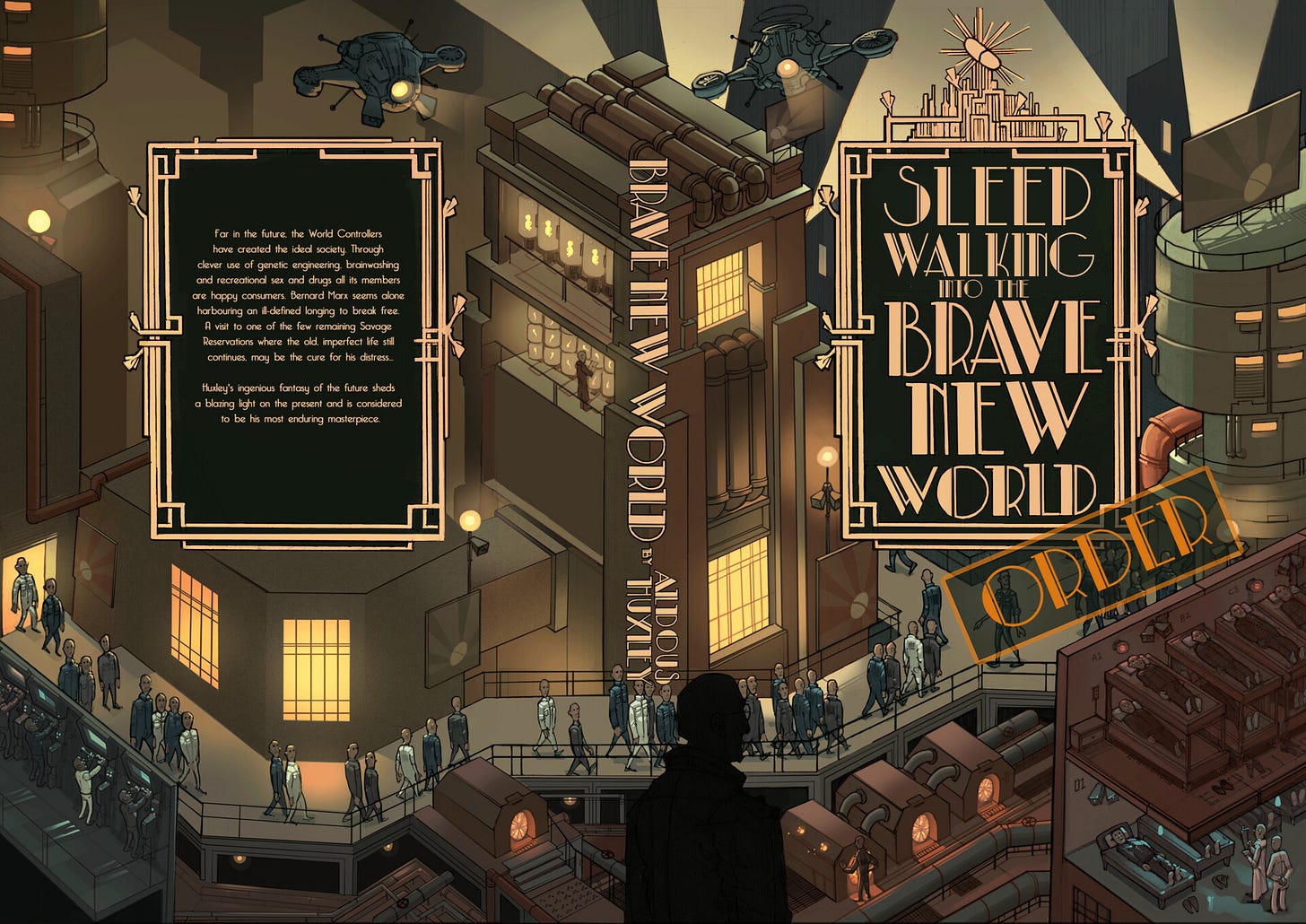

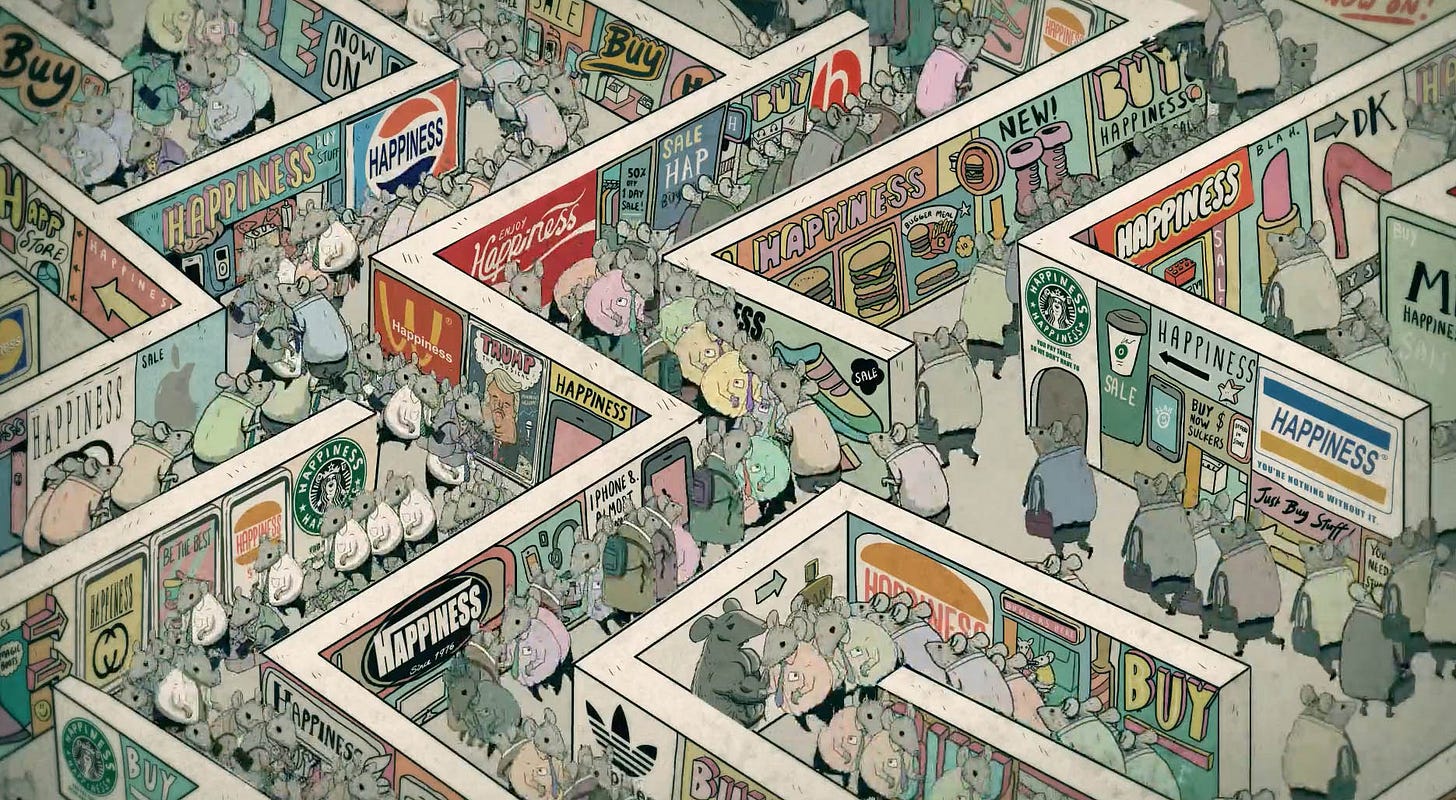
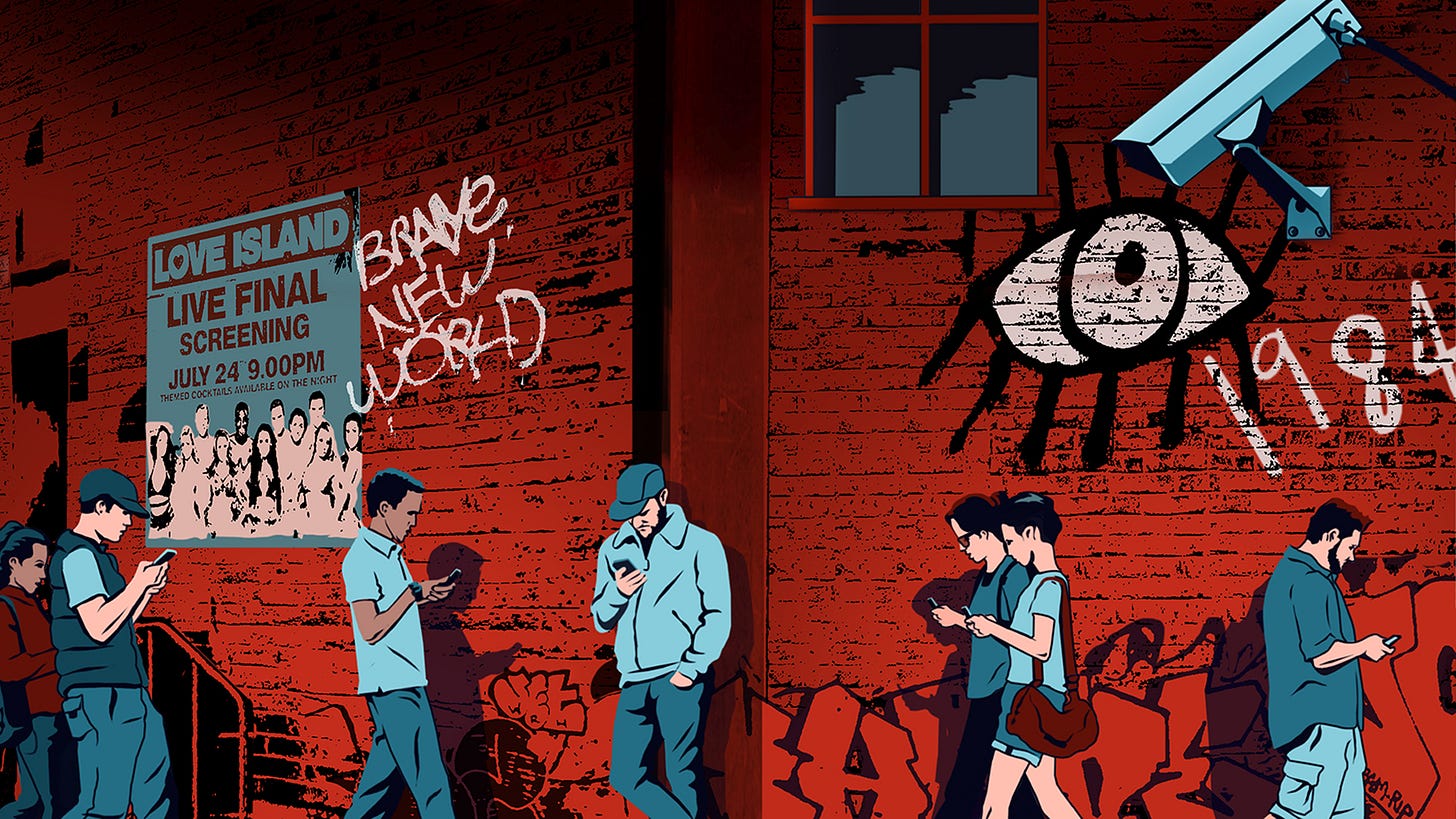
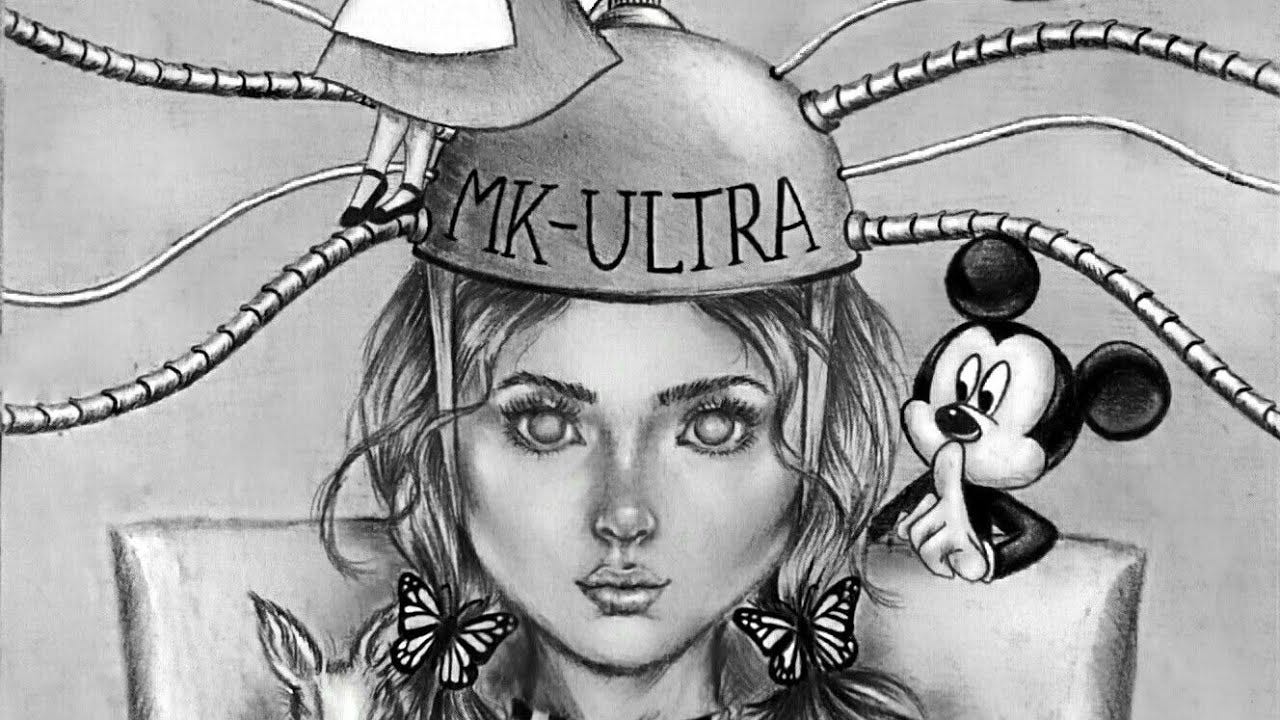


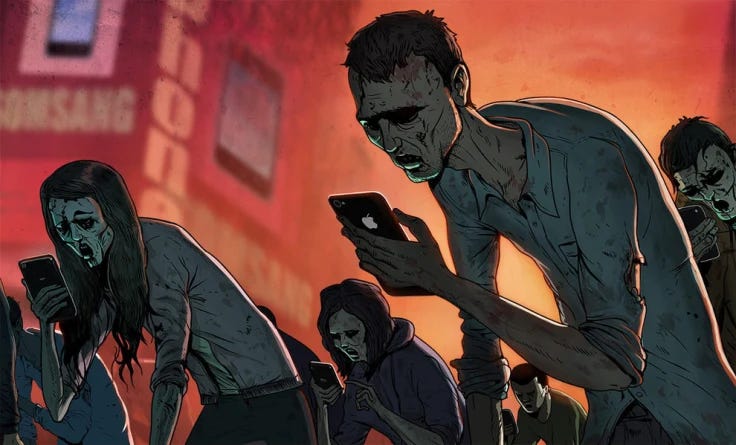


What a brilliant Substack. But where are all the commenters?
Just a suggestion, this Substack post could have been in several instalments. I, for instance have forgotten what I was thinking when reading the early parts.
I did however note to ask if you are familiar with W.Bruce Lincoln's book "The Conquest of a Continent. Siberia and the Russians"?
There's a part in it where a shopkeeper has to put a propaganda slogan amongst his display of meat or whatever in the window. He pays the sign no heed. His customers pay the sign no heed. But all know that if that sign is not in the centre of the window, well, then the butcher would be dead meat.
During our March 2020 Lockdown here in NZ most everyone in this neighborhood had a teddy bear or similar soft toy looking out of their window. Cindy said that it would be nice to do it. People posted photos of the bears.
I wondered if I was going to be ostracized for not playing along.
Then there was the 6pm standing at the gate clapping for the essential workers ritual.
That felt like totalitarianism, and the bliss that people expressed over doing it.
Ah, the humanised mice.
I am writing from NZ, where we have famously had low levels of government corruption and thus high levels of trust in government institutions. Generally we can trust all manner of people to do what they are paid to do.
This trust has been taken advantage of, unfortunately showing NZers as naive.